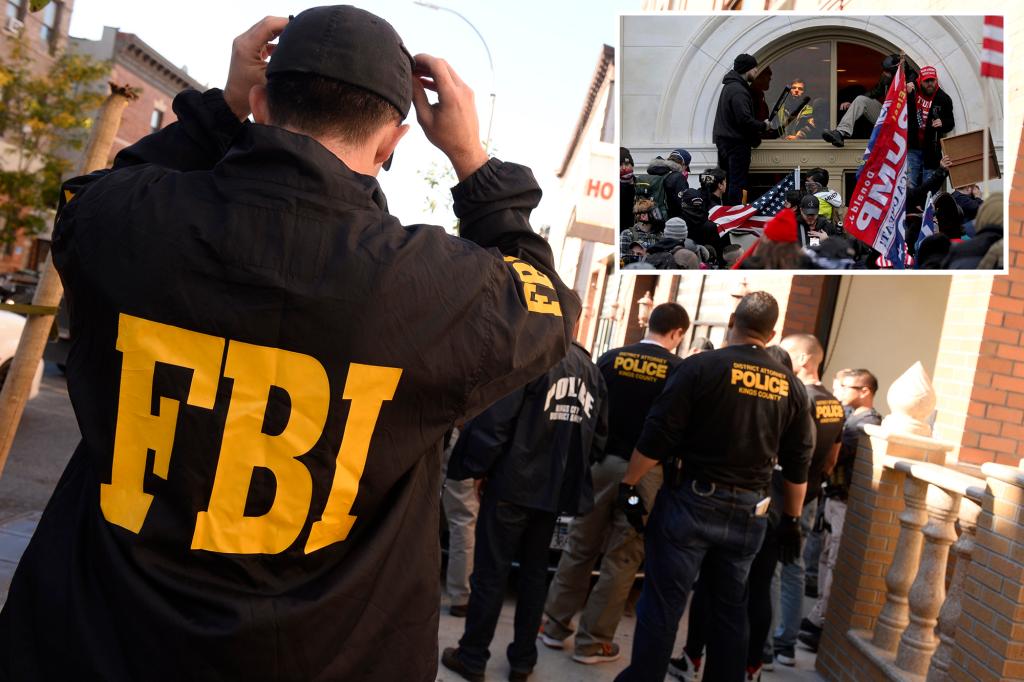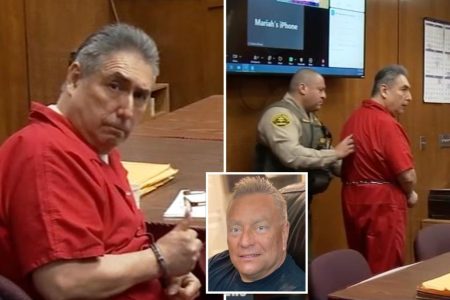The unfolding legal battle between FBI agents and the Justice Department underscores a deep rift within the federal law enforcement apparatus, highlighting concerns about political interference and potential retribution against agents involved in investigations targeting former President Trump. At the heart of the dispute are two high-profile investigations: the January 6th Capitol riot and the classified documents case against Trump. Nine FBI agents have filed a class-action lawsuit alleging that acting Attorney General James McHenry and other DOJ officials are engaging in a politically motivated campaign of retaliation. The lawsuit claims that DOJ leadership is using surveys to identify agents involved in these investigations, creating a list that could be used for terminations, demotions, or other adverse employment actions. This action, the agents argue, is a direct response to a deadline set by the Trump administration for the DOJ to identify agents involved in the probes.
The agents’ fears are not unfounded. The lawsuit details how the dismissal of Special Counsel Jack Smith, along with the subsequent firing of more than a dozen prosecutors involved in the Trump investigations, has created a climate of fear and uncertainty within the FBI. The agents contend that even if they are not terminated, they could face a range of retaliatory actions, impacting their career progression and professional standing. Beyond the immediate threat to their careers, the agents also express profound concern for their personal safety and that of their families. The lawsuit suggests that the list of agents, if released, could be disseminated by Trump allies, potentially exposing them to retribution from individuals pardoned for their involvement in the January 6th Capitol breach. This fear is exacerbated by reports that some agents’ personal information has already appeared on the “dark web,” raising the specter of targeted harassment and violence.
The scope of the potential danger is amplified by former President Trump’s extensive use of his pardon power. The lawsuit notes that Trump pardoned approximately 1,500 individuals convicted of crimes related to the January 6th attack, releasing a significant number of individuals who may harbor resentment towards the FBI agents who investigated them. This creates a volatile situation, with agents fearing potential reprisals from individuals now free from legal consequences. The lawsuit stresses the vulnerability of the agents and their families, painting a picture of individuals living in fear of retaliation for simply carrying out their duties.
Further compounding the agents’ concerns is the broader effort within the DOJ to compile lists of personnel involved in the Trump investigations. The lawsuit reveals that Acting Deputy Attorney General Emil Bove requested US attorneys in each state to identify prosecutors who worked on these cases. This systematic effort to identify individuals involved in the investigations reinforces the agents’ belief that they are being targeted for political reasons. Parallel to the class-action lawsuit, the FBI Agents Association and other anonymous bureau employees have filed a separate legal action seeking a temporary restraining order against the DOJ to prevent the release of any names of the approximately 6,000 agents and employees who investigated the Capitol riot.
The FBI Agents Association emphasizes the chilling effect that the DOJ’s actions could have on law enforcement. They argue that publicizing the names of agents involved in politically sensitive investigations would not only endanger those individuals but also deter future agents from pursuing such cases, ultimately weakening the FBI’s ability to investigate potential threats to national security. This concern underscores the broader implications of the lawsuit, highlighting the potential for political interference to undermine the integrity and effectiveness of federal law enforcement. The FBI Agents Association underscores the inherent risk that agents take in protecting the country and expresses outrage that they are now being subjected to potential retaliation for simply doing their jobs. The association’s president, Natalie Bara, argues that this reckless action jeopardizes the safety of agents and their families, creating a climate of fear and distrust.
Both lawsuits assert that the DOJ’s actions violate the agents’ First Amendment rights, the Privacy Act of 1974, and their due process rights. They reference prior commitments made by Attorney General-designate Pam Bondi and FBI Director-designate Kash Patel to respect agents’ due process rights and refrain from retribution for their lawful investigations into the January 6th events. The silence from the Justice Department in response to requests for comment further intensifies the uncertainty surrounding the situation. The lack of a clear and public statement from the DOJ fuels the perception that the department is unwilling to address the serious concerns raised by the agents, adding to the anxiety and distrust within the ranks of the FBI. The legal battle highlights a broader struggle within the justice system, raising questions about the balance between political accountability and the protection of law enforcement officers from undue influence and retaliation.










